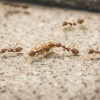
Taking a deep dive into the complex world of ants, this article explores their fascinating abilities that make them one of the most successful species on earth. From teamwork to navigation, these tiny creatures have a lot to teach us.
Versatile Ants: Masters of Survival
When it comes to survival, ants stand as one of the most versatile and adapted species on Earth. Despite being tiny in size, they exist in nearly all terrestrial ecosystems. This widespread presence can be ascribed to their unique abilities to form complex societies, adapt to various habitats, and establish intricate communication networks. In addition, they show remarkable resilience in the face of adversity, partaking in activities from farming fungi for food to defending their colonies from predators.
Exceptional Teamwork of Ants
Unlike many species, ants are eusocial insects meaning they live in highly organized colonies, demonstrating exceptional teamwork. Each individual in a colony has a specific role, from workers gathering food and maintaining the nest, soldiers defending the colony, to the queen responsible for reproduction. The success of ant colonies is largely due to this division of labor and their extraordinary cooperative behavior.
Astonishing Navigation Skills
Among their many striking abilities, the navigational skills of ants stand out. Studies reveal that ants use a mix of celestial cues, such as the position of the sun and the patterns of polarized light in the sky, to navigate. They also make use of visual landmarks and engage in a behavior known as 'path integration' or 'dead reckoning'. This involves the ant keeping track of direction and distance to know its location relative to the nest at all times.
Chemical Communication in Ants
Ants communicate and coordinate their activities using pheromones, a form of chemical signaling. Workers, for instance, leave a trail of pheromones while foraging for food. Other ants in the colony can then follow this trail to food sources. They also use pheromones for other functions such as sounding an alarm, marking territory, and guiding other ants.
Farming and Herding: Ants as Agriculturists
Remarkably, ants are among the few animals that practice farming and herding. Some ants cultivate aphids and other insects, 'herding' them to specific plant parts and 'milking' them for honeydew. Others, known as leaf-cutter ants, engage in agricultural practices similar to human farming. They cut leaf fragments, carry them back to their nest, chew them into a pulp, and use it to grow a species of fungus which serves as their primary food source.
Ants’ Defense Tactics
When it comes to defending their colonies, ants employ a variety of sophisticated strategies. Some species use their jaws or sting to attack invaders. Others release toxic or sticky substances. Certain ant species are also known to engage in self-sacrificing behavior. When threatened, these ants rupture their own bodies, releasing sticky secretions that can immobilize or kill predators.
In Conclusion: The Marvelous World of Ants
The world of ants is a testament to the wonders of nature. From their extraordinary teamwork and impressive navigational skills to their advanced forms of agriculture and defense mechanisms, ants continue to astonish us with their abilities. Studying these tiny creatures offers valuable insights into resilience, cooperation, and sustainable living, lessons that are deeply relevant to our own species. So, the next time you see an ant, remember that you're looking at one of the planet's most successful, well-adapted, and innovative species.
















